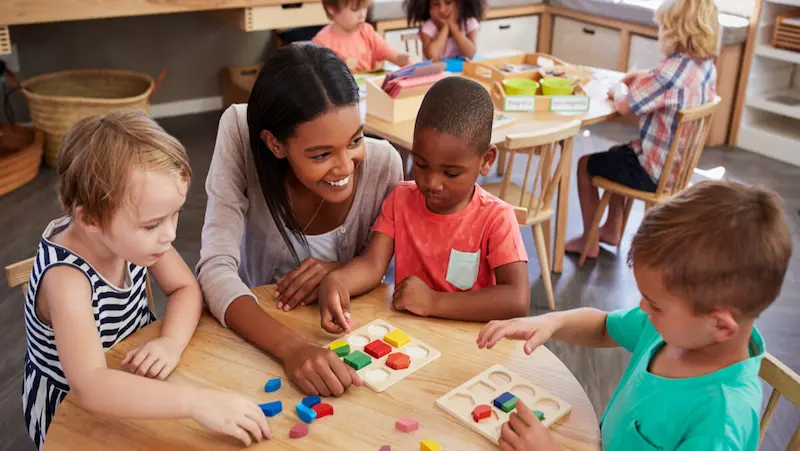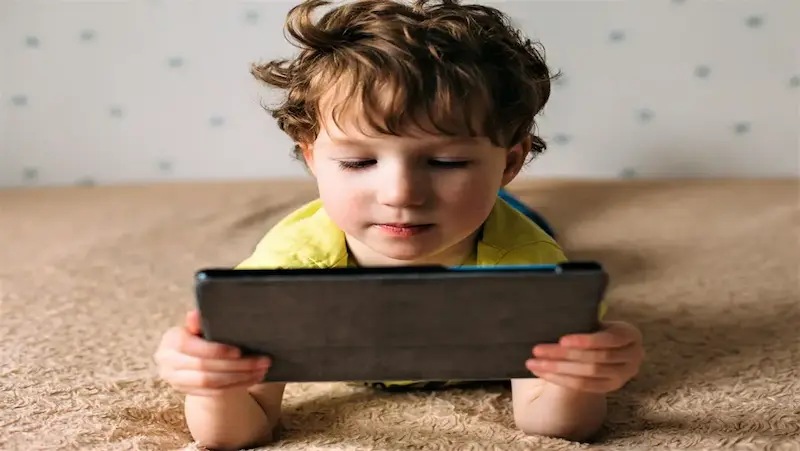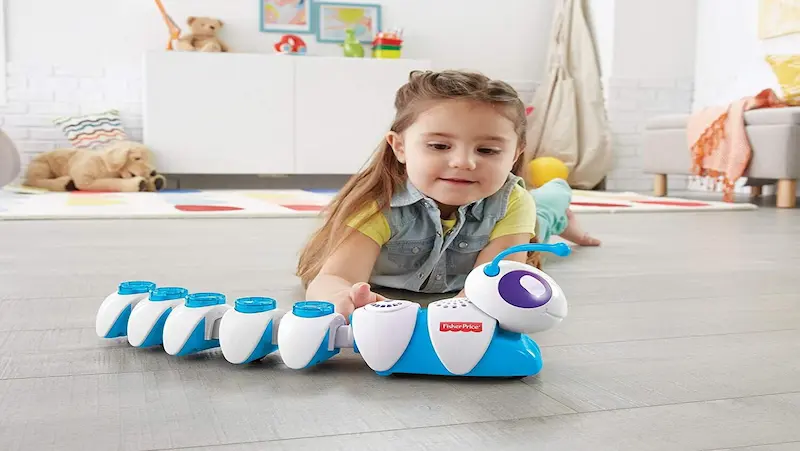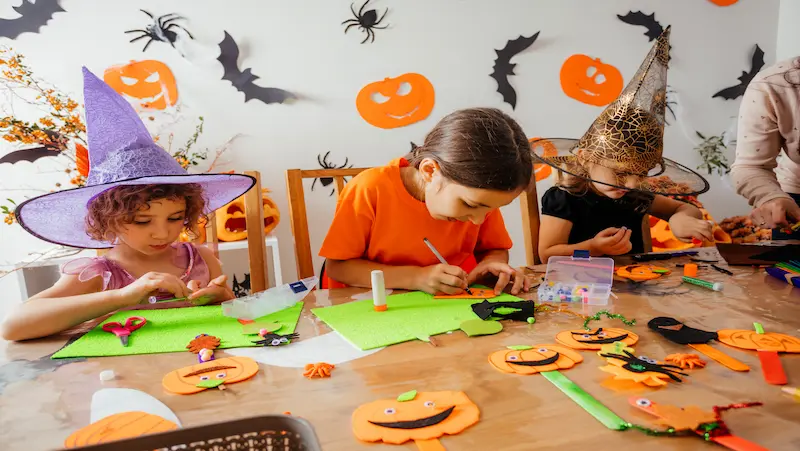Are you a parent seeking the best ways to support your 1-year-old’s development through play? In this guide, we explore the transformative power of educational toys in your child’s early years. From enhancing cognitive skills to fostering social growth, we’ll delve into various toy types that engage your toddler’s senses, stimulate creativity, and lay the groundwork for a joyous and educational journey ahead. Let’s embark on this exciting adventure together!
Table of contents
- Introduction
- Benefits of Educational Toys for 1-Year-Olds
- Types of Educational Toys for 1-Year-Olds
- Language Development Toys
- Outdoor and Active Play Toys
- Art and Creativity Toys
- Role-Play and Pretend Play Toys
- Technology and Learning Gadgets
- Educational Apps and Screen Time for Toddler
- Eco-Friendly and Sustainable Toys
- Safety Considerations for Educational Toys
- Parental Involvement in Playtime
- Storage and Organization of Educational Toys
- Conclusion
- Frequently Asked Questions
Introduction
Play is an integral part of a child’s early development. It goes beyond just having fun; play is how children explore, learn, and make sense of the world around them. Educational toys play a crucial role in fostering their cognitive, physical, social, and emotional growth.
As parents, selecting age-appropriate toys that align with your child’s developmental stage is essential to optimize their learning experiences. When choosing toys for your 1-year-old, consider their developmental milestones.
Toys that encourage exploration, problem-solving, creativity, and sensory stimulation are ideal at this age. Opt for safe, non-toxic materials that can withstand rough handling. Avoid toys with small parts that may pose choking hazards.

Benefits of Educational Toys for 1-Year-Olds
1. Stimulating Sensory Development: Engaging the Senses through Play
At one year old, children are exploring the world through their senses. Sensory toys like textured balls, soft fabrics, and musical instruments engage their sight, sound, touch, and taste, promoting sensory development.
2. Enhancing Cognitive Skills: Building Problem-Solving Abilities
Educational toys challenge young minds, fostering cognitive development. Shape sorters, puzzles, and stacking toys encourage problem-solving, critical thinking, and hand-eye coordination.
3. Promoting Fine and Gross Motor Skills: Encouraging Physical Development
Toys that promote physical movement, such as push toys, ride-ons, and stacking blocks, help develop fine and gross motor skills. These activities are vital for muscle coordination and overall physical development.
4. Fostering Social and Emotional Growth: Building Connections through Play
Playing with others helps 1-year-olds develop social skills and emotional intelligence. Role-play toys, dolls, and action figures enable them to explore empathy, communication, and storytelling.
Types of Educational Toys for 1-Year-Olds
1. Sensory Toys: Engaging Sight, Sound, Touch, and Taste
Sensory play enhances a child’s exploration of the world. Look for toys with different textures, sounds, and colors to stimulate their senses.
2. Shape Sorters and Puzzles: Exploring Shapes and Problem-Solving
Shape sorters and puzzles help 1-year-olds recognize shapes and develop problem-solving skills as they figure out how to fit the pieces together.
3. Stacking and Nesting Toys: Building Coordination and Creativity
Stacking and nesting toys foster creativity and coordination as toddlers experiment with building structures using blocks and cups.
4. Musical Instruments: Discovering Rhythms and Sounds
Musical instruments introduce children to the world of sound and rhythm, enhancing their auditory perception and creativity.
5. Building Blocks: Enhancing Imagination and Spatial Awareness
Building blocks provide endless opportunities for imaginative play and help develop spatial awareness.
Language Development Toys
1. Interactive Books: These engaging books with textures, flaps, and sound effects introduce words and concepts, fostering language development while nurturing a love for reading.
2. Talking and Singing Toys: These interactive toys speak or sing simple phrases, encouraging language skills and vocabulary expansion through playful interactions.
3. Language Learning Apps: Interactive apps designed for language development can be effective in introducing words, pronunciation, and basic concepts in a fun and engaging way.

Outdoor and Active Play Toys
1. Ride-On Toys: These toys promote physical activity and exploration as toddlers move around on wheels, enhancing their motor skills and sense of independence.
2. Play Tents and Tunnels: Offering imaginative adventures outdoors, these play structures encourage creativity and social play while providing a safe space for exploration.
3. Balance Bikes: These pedal-less bikes help children develop balance and coordination, preparing them for the transition to regular bicycles later on.
Art and Creativity Toys
1. Crayons and Washable Markers: These art tools unleash artistic expression, allowing children to explore colors and shapes while developing fine motor skills.
2. Play Dough and Clay: Providing hands-on sculpting and tactile fun, these materials encourage creativity and sensory exploration, supporting fine motor development.
3. Watercolor Paint Set: Watercolors enable kids to experiment with blending colors, promoting creativity and artistic skills while being easy to clean up.
Role-Play and Pretend Play Toys
1. Toy Kitchen Sets: Fostering imaginative play, these sets allow kids to role-play as chefs, promoting creativity and social skills through pretend cooking and interaction.
2. Dolls and Action Figures: Nurturing empathy and storytelling, these toys encourage kids to engage in imaginative scenarios, enhancing emotional intelligence and communication skills.
3. Dress-Up Costumes: Enabling children to role-play various characters, dress-up costumes inspire creativity and social interaction as they explore different roles and scenarios.
Technology and Learning Gadgets
1. Interactive Learning Tablets: These gadgets introduce early educational content through interactive apps and games, supporting early learning in an engaging and age-appropriate manner.
2. Smart Stacking Toys: Combining technology with traditional play, these interactive toys provide a blend of digital and physical experiences, enhancing cognitive and motor skills.
3. Educational Robots: These tech gadgets offer interactive learning experiences, promoting problem-solving and critical thinking while introducing children to basic programming concepts.

Educational Apps and Screen Time for Toddler
1. Age-Appropriate Educational Apps: Curated for toddlers, these apps offer interactive learning experiences, promoting early literacy, numeracy, and problem-solving skills.
2. Guided Learning Activities: Balancing screen time with hands-on play, these apps provide structured learning opportunities, reinforcing concepts introduced through interactive activities.
3. Interactive Story Apps: These apps offer interactive storytelling experiences, nurturing a love for reading and language development through engaging visuals and narration.
4. Puzzle and Shape Apps: These apps challenge toddlers with age-appropriate puzzles and shape recognition games, fostering cognitive skills and spatial awareness.
5. Creative Art Apps: Encouraging artistic expression, these apps allow toddlers to draw, paint, and create digital art, supporting fine motor skills and creativity.
Eco-Friendly and Sustainable Toys
1. Wooden Toys: Crafted from renewable resources, these eco-conscious options are durable, non-toxic, and promote safe and imaginative play.
2. Sustainable Materials: Toys made from recycled or organic materials reduce environmental impact, offering a greener approach to conscious toy selection.
3. Plant-Based Plastics: Toys made from plant-derived plastics, like cornstarch or sugarcane, are biodegradable and environmentally friendly, contributing to a sustainable future.

Safety Considerations for Educational Toys
1. Non-Toxic Materials: Choose toys made from safe and non-toxic materials, ensuring they are free from harmful chemicals that could pose health risks.
2. Size and Choking Hazards: Avoid toys with small parts that could be choking hazards for young children. Opt for age-appropriate toy sizes.
3. Durability and Construction: Select toys with sturdy construction and no sharp edges to prevent accidents during play.
4. Safety Certifications: Look for toys that have undergone safety testing and bear relevant certifications, such as ASTM or CE marks.
5. Age Recommendations: Always follow the age recommendations provided by the manufacturer to ensure the toy’s suitability and safety for your child’s developmental stage.
Parental Involvement in Playtime
1. Bonding and Learning Together: Participate actively in play to strengthen the parent-child bond and create positive associations with learning experiences.
2. Recognizing Developmental Milestones: Observe your child’s play to identify milestones and provide appropriate support or challenges to encourage growth.
3. Providing Guidance: Offer gentle guidance and encouragement during play, helping your child explore new skills and interests.
4. Following Your Child’s Lead: Let your child take the lead in play, respecting their interests and preferences, which fosters autonomy and creativity.
5. Time for Unstructured Play: Allow unstructured playtime for your child to explore their imagination freely, promoting problem-solving and independent thinking.
Storage and Organization of Educational Toys
Creating Play Spaces: Organizing Toys for Easy Access
Designate play spaces where toys are easily accessible, promoting independent play and tidiness.
Toy Rotation: Keeping Playtime Fresh and Exciting
Rotate toys periodically to keep playtime fresh and exciting, encouraging creativity and curiosity.

Conclusion
In conclusion, educational toys lay the foundation for a child’s learning journey, fostering curiosity, joy, and a love for learning.
As parents, your involvement, selection of age-appropriate toys, and fostering a playful environment are key to nurturing your child’s curiosity and joy in learning from an early age. Playful beginnings pave the way for a bright educational journey ahead.
Emphasizing eco-friendly options and the importance of unstructured play, the blog encourages parents to create a stimulating and safe environment for their child’s learning journey.
By nurturing curiosity and joy in learning through play, parents can lay a solid foundation for their child’s educational path, setting them on a path of exploration, creativity, and lifelong love for learning.
To get your hands on more such educational and free resources on coding for kids, robotics courses for kids, game development, etc., do check out the Brightchamps Page now!
Frequently Asked Questions
Introduce educational toys around 9-12 months when their cognitive, motor, and sensory skills develop. Start with simple toys that stimulate their senses and encourage exploration.
Educational toys are designed to promote learning and development, targeting specific skills like problem-solving, creativity, and sensory perception, while regular toys mainly entertain without an educational focus.
Follow safety guidelines by choosing age-appropriate toys, avoiding small parts that could be choking hazards, ensuring non-toxic materials, and checking for safety certifications.
Encourage independent play by providing a safe and stimulating play space, rotating toys to keep them interesting, and allowing your child to explore and discover on their own.
Affordable options for educational toys include simple puzzles, shape sorters, stacking cups, building blocks, and DIY sensory play items like rice-filled bottles or cloth texture squares.


 We are an army of educators and passionate learners from BrightChamps family, committed to providing free learning resources to kids, parents & students.
We are an army of educators and passionate learners from BrightChamps family, committed to providing free learning resources to kids, parents & students.







